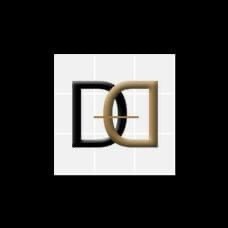Radha Stirling Statement on Saudi Arabia Cabinet Shuffle
- Detained in Dubai
- Dec 28, 2018
- 3 min read

Radha Stirling, Middle Eastern Criminal and Civil Justice Expert, Expert Witness and founder of Detained in Dubai issued the following statement in relation to Saudi Arabia’s cabinet shuffle:
“Saudi Arabia announced a cabinet shuffle today that saw Foreign Minister Adel Al Jubeir ‘demoted’, though not altogether removed, and replaced by former Finance Minister Ibrahim Al Assaf. Many have commented that this change is little more than a damage-control PR maneuver by Mohammad bin Salman to distance himself from the murder of Jamal Khashoggi; but that may be a superficial analysis of the move.
There is no doubt that the Khashoggi killing, as well as a few other controversies have tarnished the image of MBS and Saudi Arabia recently. There has been greater scrutiny of Saudi’s war in Yemen, for instance, and Al Jubeir took a controversial stance towards Canada over their criticism of Saudi human rights. He has been very visible as a defender of Saudi policy, and his removal will imply a change in policy. It is certainly a move by MBS to consolidate his position and his future by deflecting criticism through Jubeir’s demotion. A successful shifting of blame for the Khashoggi murder, and the other controversies, along with the removal of the proverbial scapegoat, could help inoculate MBS from the continuing fallout connected to these scandals.
But that is a fairly obvious reading of the cabinet shuffle. There are other factors at play here as well. Jubeir has been keen to support a strong US presence in the Middle East and to highlight the regional threat of Iran. This stance has helped to bring Saudi Arabia and Israel closer together in a kind of strategic alliance; and it has served as the rationale for the Kingdom’s vicious military campaign in Yemen.
However, US President Donald Trump has announced that the US will withdraw from Syria, and has signaled that the US will decrease its level of intervention in the region on all fronts; even indicating that he believes Israel is not facing any threats it can’t handle (“they’ve been doing a very good job for themselves,” Trump said).
This is a policy change which will require a different style of foreign policy from Saudi Arabia; possibly less aggressive, less outspoken, and less confrontational. Jubeir’s replacement will be Ibrahim Al Assaf who served as Finance Minister for twenty years, he is from the old guard, and has a deep knowledge of Saudi Arabia’s relationships and economic interests. I would expect his approach to be more low key and pragmatic, reflecting the changes in the strategic landscape in the wake of a diminished American presence.
Russia has expressed concerns that the United States might try to interfere with the decision to remove Jubeir, because his demotion may open a door for the development of a more collaborative relationship between Riyadh and Moscow, particularly with regard to reconstruction in Syria. But, aside from Trump’s announced withdrawal of US troops, there have been indications that the Americans are not comfortable with Saudi Arabia’s recent assertiveness in the region. Reportedly, the US intervened to prevent a Saudi invasion of Qatar, and serious concerns have been raised about the brutality of the Saudi-led war in Yemen. The US had been viewing Saudi Arabia’s foreign policy as an increasingly destabilizing force in the region even before the Khashoggi killing. Seeing the Saudis adopt a more conventional diplomatic relationship with their neighbours is unlikely to upset American interests; even if that means the Kingdom may become more cooperative with Russia.
It seems wise for Saudi Arabia at this stage to draw down their enmity towards Iran, as they take on a role in the reconstruction of Syria. The UAE is opening an embassy again in Damascus, and the Saudis are going to have to normalize relations with the Syrian government to some degree for purely economic reasons, and this inevitably means decreasing the tension between Riyadh and Tehran, as Iran is a major player in Syria.
It remains to be seen how this potential policy shift will impact Saudi Arabia’s relationship with Israel, particularly given the recent airstrikes by the IDF against targets in Damascus. But overall, the removal of Adel Al Jubeir seems to be a welcome return to form for Saudi foreign policy and will hopefully see their provocative role in regional volatility subside.”












